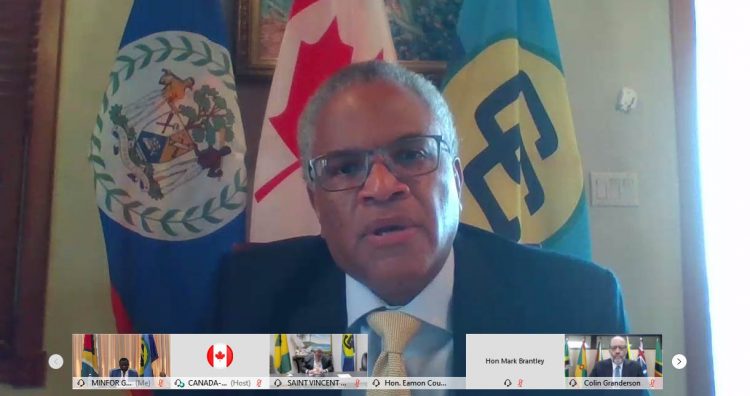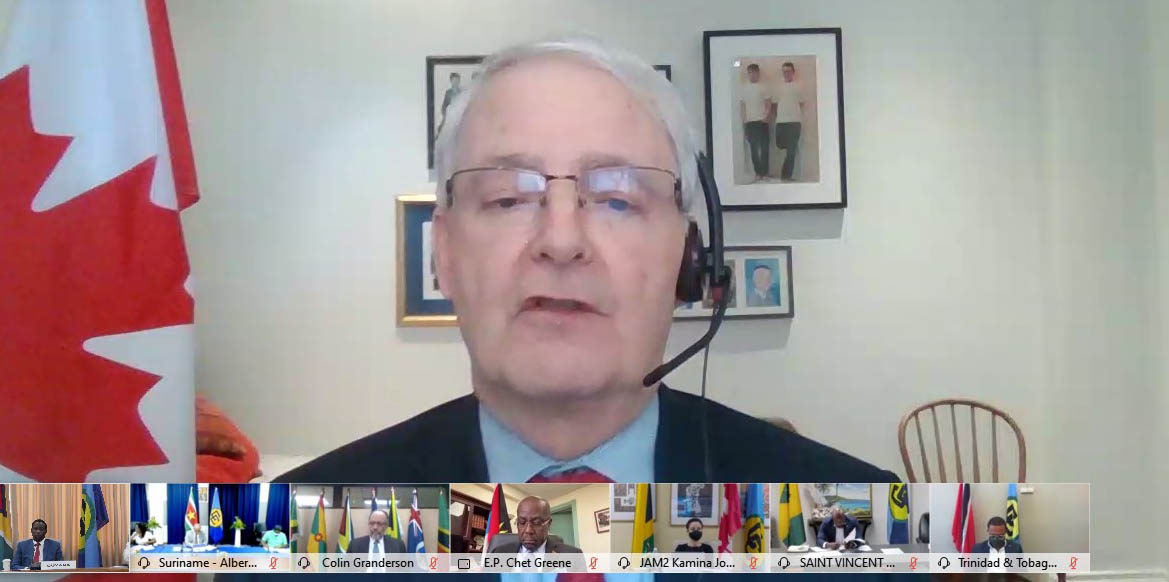Canada has pledged C$81.41M for the replenishment of the Caribbean Development Bank’s Special Development Fund and committed a further C$9M to the World Food Programme to support logistics and tackle food insecurity within the Caribbean.
The Canadian High Commission here in a release yesterday noted that Canada made this disclosure when Marc Garneau, Ottawa’s Minister of Foreign Affairs met with Eamon Courtenay, Belize’s Minister of Foreign Affairs and the incoming Chair of the Council for Foreign and Community Relations of the Caribbean Community (CARICOM). The two co-chaired the first meeting of the Canada-CARICOM Foreign Ministers’ Group. This forum serves as a platform for Canada and Caribbean partners to discuss shared priorities and opportunities for coordinated action.

The release stated that during the meeting, the ministers exchanged views on their countries’ coordinated response to the ongoing COVID-19 pandemic, identified shared priorities in achieving inclusive economic growth in the region and discussed areas of collaboration on climate resilience to support an inclusive and sustainable recovery.
The release said that Garneau affirmed Canada’s strong support for the COVAX facility, and Ottawa’s commitment to continue encouraging others to provide additional support needed by this key multilateral partnership to ensure equitable access to vaccines globally.
Guyana’s Foreign Minister Hugh Todd addressed the meeting on the issue of Economic Recovery and Inclusive Growth.
According to the Ministry of Foreign Affairs, he underlined the financing gap faced by the Caribbean and stated that CARICOM Member States have experienced increased pressure on public health systems and social structures, thus driving up public debt and triggering a decline in productive activities.
“Our economies have had as the IMF describes it a ‘Cardiac Arrest’ and this is due to the economic dislocation associated with the pandemic,” the Foreign Minister said.
He said that he fully supported the CARICOM financing proposals which call for:
-an increase in IMF Special Drawing Rights (SDRs) allocation;
-the refinancing of COVID-19 related debt into long-term instruments with fixed lower interest rates and long moratorium of seven to ten years.
However, he said that the region must also continue to work together to build its collective resilience through a stronger macroeconomic governance framework, a modernized financial architecture, upgrading the regional agri-food system for increased food and nutrition security and other regional priorities.
“Given the continued uncertainty regarding the virus and associated economic impacts, it is incumbent upon us to provide policy support for recovery that centralizes long-term resilience-building and inclusivity in the focus,” Todd added.
“We must address the high degree of informality in our services sector; lack of diversification in our production and export sectors; over-reliance on primary products; a high food import bill; preponderance of micro, small and medium-sized enterprises; and embrace e-Commerce,” he asserted.





